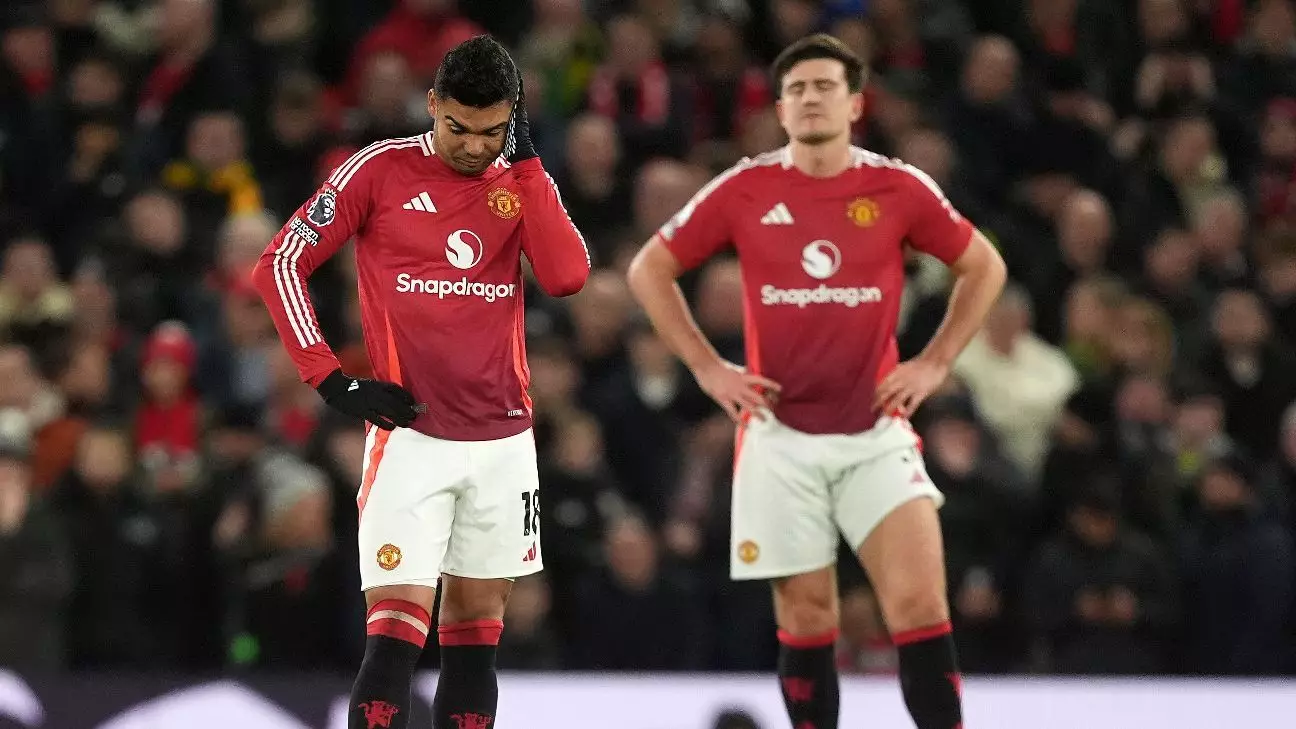The rich history of Manchester United is steeped in glory, triumphs, and legendary performances. However, the club currently finds itself in a dire situation that threatens to redefine its identity. After a string of poor performances and an alarming defeat against Newcastle United, the atmosphere at Old Trafford is one of discontent, frustration, and calls for drastic changes. The essence of the current malaise goes beyond tactical errors; it speaks to deeper issues plaguing the club’s philosophy, recruitment strategy, and overall morale.
A Season of Discontent
This season was expected to be a resurgence for Manchester United, a side that had been reshaping its destiny after a tumultuous period. Yet, what unfolded instead has been a disheartening sequence of results that saw the team tumble into an unprecedented crisis—four consecutive defeats and the threat of relegation lurking closer than anyone anticipated. For the first time in over four decades, fans witnessed their team lose three consecutive league matches within the confines of Old Trafford. The echoes of discontent from the stands are a loud reminder of how far the club has strayed from its former heights.
With the squad struggling, the early signs of disention were evident when head coach Ruben Amorim made the decision to substitute Joshua Zirkzee halfway through the first half against Newcastle. The cheers from the stands speak volumes about the mood among supporters, indicating that frustration is now directed not just at the players but at the club’s management and leadership. Zirkzee, recently signed from Bologna, became an easy scapegoat in a system that has failed to deliver consistent performances. This incident encapsulated a growing sentiment that supporters are fatigued with their team’s lack of fight and direction.
Issues on and off the Field
The recent defeat against Newcastle was not an isolated incident but part of a broader narrative of underachievement. Amorim’s post-match comments highlighted the pervasive sense of embarrassment in losing so frequently and in such a lackluster manner. It’s increasingly evident that the players might not be performing to the best of their abilities, but this raises crucial questions: Are they simply not good enough, or is there a deeper issue regarding the coaching, tactics, and overall philosophy?
Amorim’s 3-4-3 system has come under scrutiny. While tactical choices are essential in any game, the inability to execute fundamental skills—missed tackles, weak passes, and disorganized defending—points to severe deficiencies beyond just formation. Events on the field have suggested that individual players may lack the confidence needed to perform, casting doubts on their mental fortitude. Furthermore, the team’s lack of consistency in training has emerged as a critical factor contributing to their downturn in performance.
As defeats accumulate, the question arises about who bears the brunt of responsibility for the dismal state of affairs. Should it be Amorim, a coach who has only recently taken over and uniquely experienced the heat of the Premier League, or the players, many of whom have been part of the squad for years and should be performing at a higher level? Amorim’s decision to shield his players is commendable, but it’s also crucial for leaders to identify root causes. Without accountability, the team may fail to address their deficiencies and will struggle to regain the confidence lost over months of disappointing results.
Moreover, the clickbait headline “You’re getting sacked in the morning” sung by Newcastle fans encapsulates the sentiment surrounding Amorim’s brief tenure. The specter of change now looms large over Old Trafford, raising the stakes for future games. With crucial fixtures ahead, including a daunting clash against Liverpool, the pressure intensifies, and any further slip-ups could spiral into an avalanche of negativity.
For Manchester United, the road to recovery is paved with challenges. The club must reassess its strategies, from player recruitment to coaching methods. With each passing week, the urgency grows. The upcoming games could not only define the season but could also shape the future of many key figures within the club.
It remains to be seen what actions the management will take—whether they will double down on their existing strategies, adapt the coaching staff, or embark on a more extensive rebuild. For the fans, the hope remains that the club can recapture the spirit of its glorious past, but it will require a collective effort from all stakeholders to steer Manchester United out of this stormy chapter into smoother waters. As history has shown, great institutions can recover, but it demands wisdom, clarity, and a united front.

